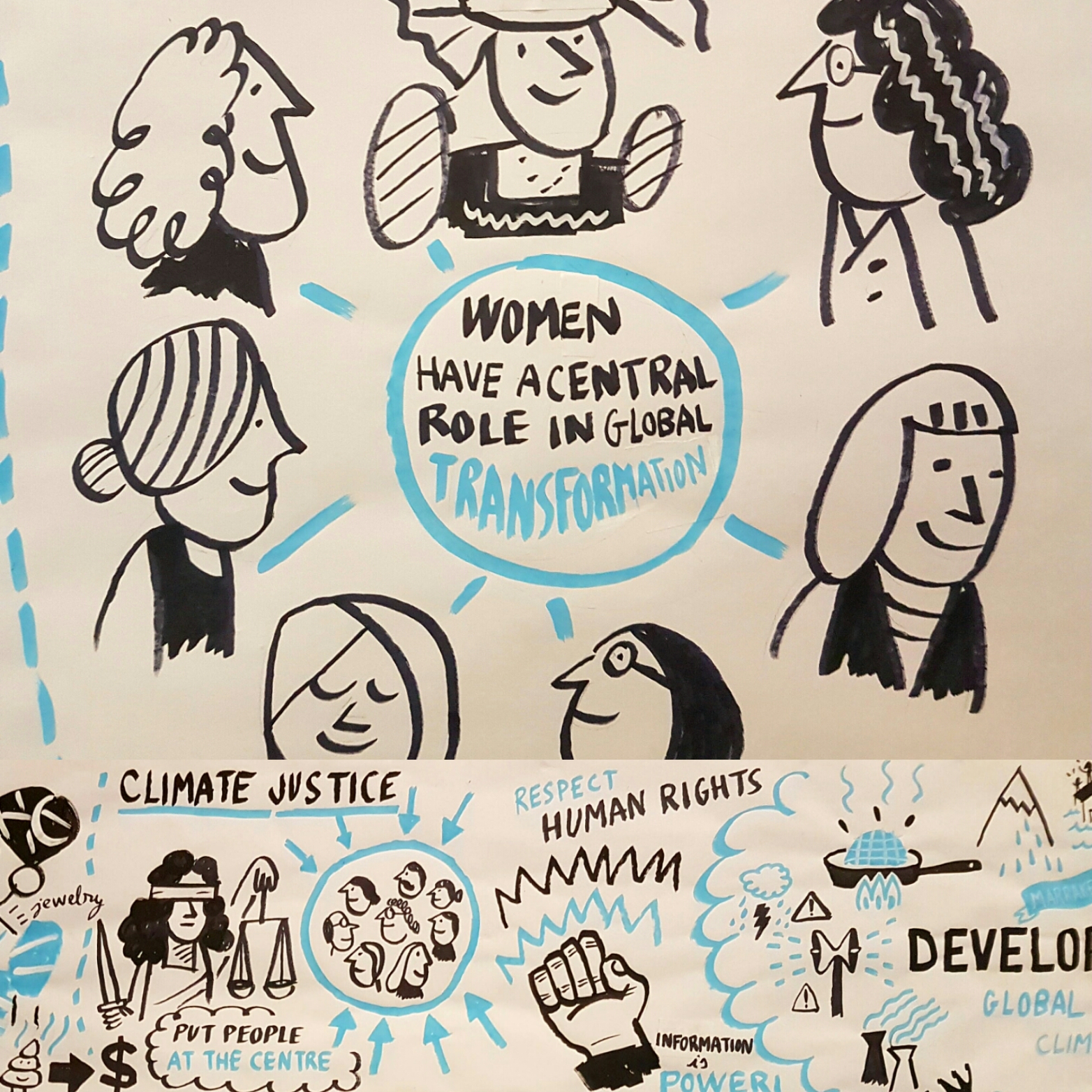On the 16th January 2018 the European Parliament adopted, by a large majority, a report on women, gender equality and climate justice, this was the first time the European Parliament adopted a report on this subject. The report establishes the link between gender equality and climate justice and places it firmly on the political agenda of the Parliament.
On introducing the report, the report rapporteur MEP Linnéa Engström, highlighted that by adopting the report the European Parliament recognises the fact that climate change impacts are unevenly distributed and are not gender neutral. The report recognises that women are disproportionally affected by climate change because of traditional social and gender roles. It focuses on the need for women to be equally included in every level of the decision making processes, as well as the design and implementation of policies.
This FEMM Committee report was informed in great part by a hearing held in April 2017, during which Mary Robinson and Jannie Staffansson, of the Arctic Council, gave testimony to women being agents of change, as well as the importance of listening to women and indigenous voices when discussing climate justice and combating climate change.
The report also acknowledges that climate change is a driver of migration, especially in the most vulnerable areas of the world. It highlights that it is women in particular who are the most severely affected by climate-induced displacement and highlights that the EU “can effectively improve legal and policy settings to support climate justice and actively participate in the development of an international framework safeguarding the human rights of climate-induced displaced persons; notes that the EU and Member States have committed to mainstreaming a gender perspective in the future Global Compact for Safe, Orderly and Regular Migration”
The Report has a number of important recommendations including the following[1]:
- Calls on the Commission and the Member States to lead by example and adopt targets and timelines for achieving the goal of gender balance in delegations to the UNFCCC
- Calls on the Commission and the Member States to ensure, in line with the EU’s commitments to gender equality and human rights, that subsequent EU Nationally Determined Contributions (NDCs) include consistent reporting on the gender equality and human rights dimensions;
- Calls on the Commission to integrate climate change into all development programmes at all levels; further calls for the increased participation of rural and indigenous women in decision-making processes, planning and implementation, and in the formulation of policies and development programmes concerning climate change;
- Calls on the Commission and the Member States to contribute to the Global Compact for Safe, Orderly and Regular Migration, with a view to safeguarding climate justice by acknowledging climate change as a driver of migration, providing human rights-based input, and mainstreaming gender equality throughout the compact, consistently with the needs of climate-displaced people;
- Calls for the EU and the Member States, with a view to further advancing the representation of women in the UNFCCC negotiations, to provide funding for women delegates’ training and participation; calls on the Commission to facilitate and support the networking of women’s organisations and civil society activities as regards the development and implementation of climate change policies; calls on the Commission to ensure that women are equal participants in, and beneficiaries of, all climate change consultations, programmes and funding organised with EU support at national and local levels;
- Calls on the Commission and the Member States to report on gender and human rights impacts and climate action in their Universal Periodic Review reports to the UN Human Rights Council;
This report will now be forwarded to the EU Commission to take the actions forward.


